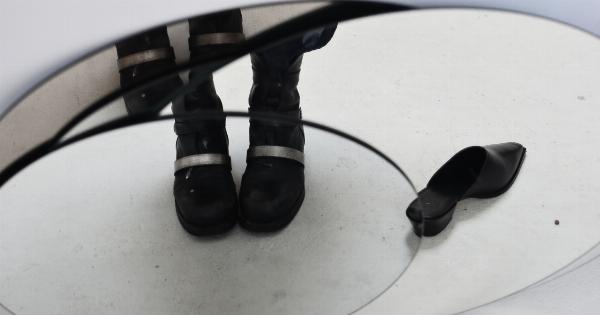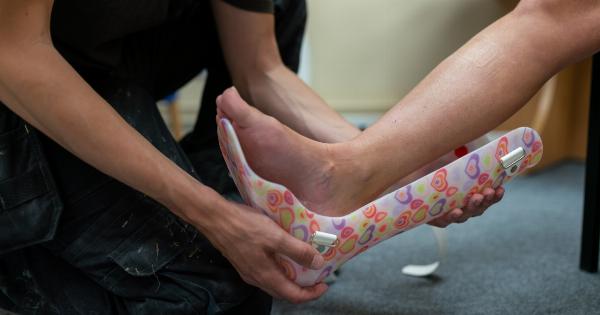Have you ever experienced a searing, burning sensation in your feet? If so, you are not alone. Many people suffer from a condition known as burning feet, also referred to as burning foot syndrome or paresthesia.
This perplexing ailment can range from mild discomfort to excruciating pain, and can greatly impact one’s quality of life. In this article, we will delve into the mysteries behind burning feet, exploring its causes, symptoms, and potential treatments.
What Causes Burning Feet?
There are numerous factors that can contribute to the onset of burning feet. One common cause is neuropathy, which occurs when there is damage or dysfunction in the nerves that carry signals from the brain and spinal cord to the rest of the body.
Neuropathy can result from various conditions, such as diabetes, vitamin deficiencies, alcoholism, and certain medications.
In addition to neuropathy, burning feet can also be caused by peripheral artery disease (PAD), a condition characterized by the narrowing or blockage of the blood vessels in the legs.
The reduced blood flow to the feet and legs can cause a burning sensation. Other potential causes include autoimmune diseases, such as rheumatoid arthritis and lupus, as well as thyroid disorders and kidney dysfunction.
Symptoms of Burning Feet
Burning feet is typically accompanied by various symptoms that can differ from person to person. The primary symptom, as the name suggests, is a persistent burning sensation in the feet.
This burning sensation is often accompanied by tingling, numbness, or a feeling of pins and needles. Some individuals may also experience increased sensitivity to touch or temperature changes in their feet.
The symptoms may worsen at night, causing difficulties in falling asleep or staying asleep. Walking or standing for prolonged periods can also intensify the discomfort.
Furthermore, individuals with burning feet may notice changes in the color or texture of their skin on the affected areas.
Diagnosing Burning Feet
If you are experiencing the symptoms of burning feet, it is important to seek a medical evaluation.
A healthcare professional will conduct a comprehensive examination, which may include a review of your medical history and any medications you are taking. They may also perform various tests to determine the underlying cause of your symptoms.
Blood tests are commonly employed to check for abnormalities in vitamin levels, hormone levels, and any signs of inflammation.
Additionally, nerve conduction studies and electromyography (EMG) can help assess the functioning of the nerves and muscles in your feet. In some cases, imaging tests such as X-rays, ultrasounds, or magnetic resonance imaging (MRI) may be ordered to identify any structural abnormalities or vascular issues that could be contributing to the burning sensation.
Treating Burning Feet
The treatment for burning feet largely depends on the underlying cause. Managing the underlying condition is often the first step in alleviating the symptoms.
For example, if neuropathy is responsible for the burning sensation, blood sugar control for diabetics or vitamin supplements may be recommended. Pain relievers or anti-inflammatory medications can also be prescribed to reduce discomfort.
For individuals with peripheral artery disease, lifestyle modifications such as regular exercise, smoking cessation, and a balanced diet can help improve blood flow to the feet.
In severe cases, procedures such as angioplasty or bypass surgery may be necessary to restore adequate circulation.
In addition to medical interventions, there are several self-care measures that can provide relief for burning feet. Soaking the feet in cool water can help soothe the burning sensation.
Applying topical creams or gels that contain numbing agents like lidocaine can also provide temporary relief. Wearing comfortable, well-fitting shoes and socks made of breathable materials is crucial to prevent exacerbation of symptoms.
Preventing Burning Feet
While some causes of burning feet may not be preventable, there are measures that can reduce the risk or severity of the condition.
Maintaining a healthy lifestyle, which includes regular exercise, balanced nutrition, and limited alcohol consumption, can help prevent or manage conditions like diabetes and peripheral artery disease.
Taking care of your feet is equally important in preventing burning feet. Avoid tight footwear or high heels that can constrict blood flow and increase pressure on the feet.
Regularly checking your feet for any abnormalities, such as cuts or sores, and promptly addressing them can help prevent infections that may contribute to burning feet.
When to Seek Medical Help
If you are experiencing persistent or worsening symptoms of burning feet, it is crucial to consult a healthcare professional. They can evaluate your condition, determine the underlying cause, and develop an appropriate treatment plan.
Early intervention can prevent complications and provide relief from the discomfort.
Conclusion
Burning feet can be a perplexing and distressing condition, but understanding its causes and seeking appropriate medical care can make a significant difference in managing the symptoms.
Whether it stems from neuropathy, peripheral artery disease, or other underlying factors, early diagnosis and treatment are essential. By taking preventive measures and adopting healthy habits, individuals can reduce their risk of developing burning feet and improve their overall foot health.





























